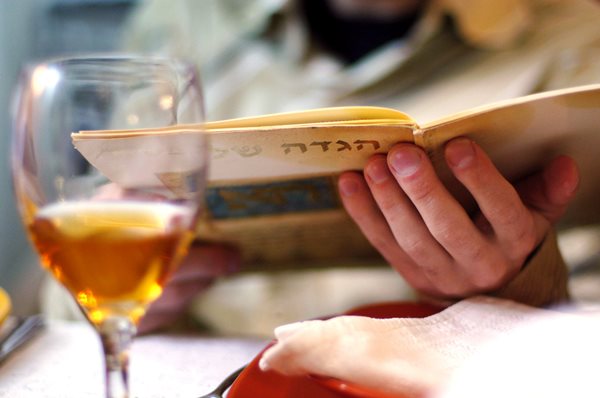The Jewish holiday of Passover is one of the most widely celebrated holidays in the Jewish calendar. Learn more about the history and traditions of Passover with this quick guide.
The Passover Story
The Passover story comes from the first half of the Book of Exodus in the Bible. These pages describe the Jewish people’s plight under slavery in Egypt, and their subsequent escape to freedom. Find more kid-friendly versions of the Passover story.
History
Passover falls on the 14th day of the Hebrew month of Nisan (late March or April). Depending on your tradition, you might celebrate Passover for seven days, while others observe the holiday for eight days.
Passover is both agricultural and historical in origin. Also known as Chag haAviv, the “Festival of the Spring,” it reminds us of the early spring harvest in the former land of Canaan, now Israel. Much more commonly recognized for its historical significance, Passover is also known as Zman Cheruteynu, “The Season of Our Freedom.”
The name Passover is symbolic of the Angel of Death “passing over” the Jewish homes while killing the first born of the Egyptians, the last of the Ten Plagues before Pharaoh let the Jews go.
Traditions

Cleaning
During Passover Jews refrain from eating chametz, food with leavening such as bread, cookies, or pasta. Before Passover begins, families will clean their homes to clear out the chametz. Check out the stories, Izzy the Whiz and Passover McClean. and Company's Coming to learn more.
Eating Matzah
During Passover, you'll probably eat matzah, a cracker-like bread substitute representing the bread that didn’t have time to rise when the Jews fled Egypt. Learn to make your own matzah.
The Seder
The seder, held on the first one or two nights of the holiday, consists of a festive meal, the retelling of the Exodus story, and several other rituals and traditions, like finding the afikomen (a piece of matzah hidden during the ceremony), singing songs like "Dayenu," and opening the door symbolically for the prophet Elijah.
The Haggadah
During the seder, families will read from the Haggadah to tell the story of Passover and pass down the traditions and lessons of the story to their children, relatives, and friends. In Hebrew, Haggadah means "telling." This book is basically a guide for the seder and includes prayers, blessings, songs, and information for how the seder should be performed. Families everywhere add their own personal touches to make the script of the Haggadah their own.
The Seder Plate
During the seder, a special seder plate is adorned with symbolic foods that illustrate the story. Watch the video below to learn more:
Traditionally recited at the seder by the youngest child present, the Four Questions ask about certain Passover rituals:
On all other nights we eat either leavened or unleavened bread. On this night, why do we eat only unleavened matzah?
Answer: To remind us of the haste with which our ancestors left Egypt.
On all other nights we eat all kinds of herbs. On this night, why only bitter herbs?
Answer: To remind us of the bitterness of slavery.
On all other nights we do not dip our herbs even once. On this night, why do we dip them twice?
Answer: Some say to remind us of our coming and going from Egypt.
On all other nights we eat sometimes sitting and sometimes reclining. On this night, why do we all recline?
Answer: To remind us of how free people relax.
Hiding the Afikomen
At the seder table, three matzahs are placed in a stack. Near the beginning of the seder, the middle matzah is broken in two pieces, and the larger piece of this matzah is called the afikomen. This piece will be wrapped and hidden, to be found at the end of the meal.
Opening the Door for Elijah
On each table is a goblet of wine called “Elijah’s Cup.” During the meal someone will open the door to welcome the prophet Elijah, exemplifying the line from the Haggadah "Let all who are hungry, come and eat."
Singing "Dayenu"
Many families will sing "Dayenu" during their seder. The word dayenu means “it would have been enough.” This joyous tune celebrates the many blessings God bestowed upon the Jewish people during their exodus from Egypt in ancient times.
Ready for Passover? Find activities, child-friendly seder ideas, recipes, and more, at pjlibrary.org/passover.
March 21, 2023